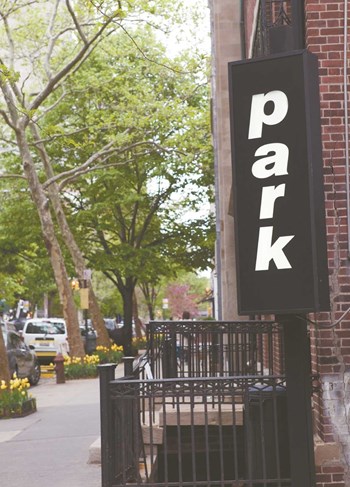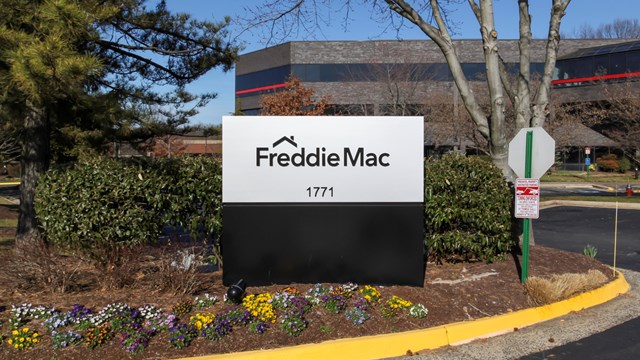
Owners of New York City co-ops or condos with parking garages in or adjacent to their building are blessed in so many ways. The ability to drive right into your building without the aggravation of hunting down a parking spot provides a level of satisfaction only a New Yorker can fully appreciate.
But apartment owners who don’t have cars are a lucky bunch as well. “Typically the garage is the biggest revenue generator in the co-op,” says Kristen Sokich, executive vice president of ProPark America. And the more efficiently that garage is run, more revenue it generates.
With the long-term contracts they signed with parking garage management companies in the conversion boom of the ‘80s and early ‘90s expiring today, a great number of buildings in New York City have a chance at a new lease on the life of their parking garage.
Management Options
There are two ways to run a parking garage. The building can keep tight control of the facility by simply contracting a management company to run the operation while they hold on to the business. The building carries all the expenses and collects all the revenue.
This approach allows the board of directors and management to dictate every aspect of the garage on an ongoing basis—to determine, say, how much preference to give residents in terms of guaranteed allotted parking spaces and discounts for parking in the facility. And it lets them choose the types of services it will offer, like valet parking, jump-starting dead batteries, inflating tires and car washing. But it also leaves them in charge of a very complicated business for which none of them is likely very well-equipped.
In New York City, the vastly more popular choice is to lease the garage outright. Some 90 percent of co-ops and condos in New York City rent their garage to a private management company, collecting a fixed monthly fee and leaving day-to-day operations and bookkeeping up to them. “You find the right guy at the right price,” advises Abe Liebb, owner of Prompt Parking, “and let him figure out how to make money.”
The first step in finding the right management company for the building is to send out a request for proposals, or RFP.
“I will send it to the top 20 operators,” says Brian Ezratty, a broker specializing in parking garages with Eastern Consolidated, a nationwide real estate investment company. “I get bids, making sure we’ve got a combination of the highest rents we can achieve, with the best operator.”
As with any vendor the building employs, advises Ezratty, “It's not always the last nickel that you are looking to get out of the deal.” Indeed, he says, “the price is the easy part. The quality is a little tougher.” It is essential to examine an operator’s track record. And not all that difficult: “It’s a big city, but it’s a small industry,” observes Ezratty.
Make sure the operator’s other garages are in pristine condition and that their employees know what they are doing. “When you tell them that you need your car at six o’clock the next day, you want to know that they understand that,” says Ezratty.
Buildings negotiating contracts will find that agreements have changed over the years to the benefit of the co-op or condo. “Leases have become a little more stringent,” observes Ezratty. “I’ve done many leases where you’re coming off a 15 or 20-year-old lease and the security deposit clause was terrible. There were no ‘good-guy’ clauses,” which prevent an operator from simply refusing to leave at the end of his lease. “It can take a year to get someone out of possession,” warns Ezratty. “The court systems favor the tenants.”
Ezratty recommends a lease that is not longer than 10 years. “Anytime I’ve seen a 20 year deal, by the time that 20 years is up, the rent is way below the market.”
It’s Strictly Business
When renting the garage facility to an outside operator, it is in the best interest of the building owners to allow the parking management company to run it to its maximum profit potential, so that it maintains its market value, and to ensure that the manager keeps the rent coming. In New York City, especially in busy areas where the big money maker for the garage is the hourly or daily parking, that means residents are generally not assigned reserved spots per se and they pay monthly fees comparable to those any outsider would pay.
That doesn’t mean the building cannot negotiate for some privileges for residents in the contract. “It’s a decision that the board needs to make,” says Sokich. “Do they want to offer discounted rates to residents or treat it as any other business? The more money they can squeeze out of it the more benefit it brings the overall building.”
“It’s a mixed bag,” says attorney Richard Siegler, of counsel at the Manhattan-based law firm of Stroock & Stroock & Lavan, LLP, “because those who park get the benefit and those who don’t park don’t get the benefit.” That said, he adds, “most garage owners throw in a 10 percent discount.”
Residents of Manhattan who use a garage on a monthly basis, it should be noted, are entitled to a special Manhattan Resident Parking Tax Exemption, which reduces the tax on their spaces from 18.375 to 10.375 percent. An application needs to be filed with the New York City Department of Finance Parking Tax Exemption Unit.
Maintenance is Key
With underground garages, according to attorney Kevin Smith, a partner with Stroock, “the biggest problem big buildings face is maintenance.” That’s where picking the right operator and negotiating a strong operating agreement becomes very important. “Most operators in New York, because they are renters,” adds Smith, “do very little to maintain garages, which is why you see so many that have potholes and exposed steel.”
A failure to properly maintain the structure of the garage, which, of course, is owned by a co-op or condo, could be disastrous. It could lead to expensive repairs, payable by the building, and disruption in the use of the garage, with the inconvenience and expense that entails. But most important, it can damage the columns of the building. Salt can penetrate the steel rebar around the columns, causing them to rust and deteriorate and eventually compromise the building’s foundation.
Scrupulous maintenance is essential especially in winter. “You can walk into garages in New York and see that most of the damage is where the cars come in because that’s where the salt comes off the wheels,” says Smith, “and that’s where it infiltrates the concrete.”
Proper maintenance of the parking garage, says Smith, “usually means it’s going to cost the operator money for keeping a coating on garage floors, making sure the repairs get made, painting, cleaning, making sure the drains work—all that stuff costs money.”
In the end, advises Smith, “it means you don’t make a deal with the cheapest guy. You find somebody who knows what they’re talking about in terms of maintenance. And make sure you have very harsh provisions for maintaining the premises.”
Duties of the Management Company
The other responsibilities of the garage operator include security, lighting, snow removal at the entrance of the garage and on the ramp and keeping the mechanisms working, including the entrance door and elevator.
“But if there is a leak from the sewer system or from a pipe in the apartment above or the concrete is falling,” says Liebb, “that would be the responsibility of the owner of the co-op.”
If the garage is not submetered, the lease should factor in an estimated cost for electricity payable by the operator.
Buildings need to make sure the operator has sufficient insurance to protect the co-op from liability in the case of someone getting hit by a car or damage to cars parking there. “You always need garage keepers legal liability insurance,” a special policy that covers customers’ vehicles and personal liability, says Sokich. “If the garage is poorly laid out, which is very typical nowadays, claims may be high. It could raise the operator’s premium and is not good for business.”
Another factor to consider when contracting a garage management company is their marketing capability—that they know how to keep a garage full and profitable, and that they are motivated to do so. “Some companies might have a conflicting interest,” cautions Sokich, which might be the case with the biggest players in the market. “In certain neighborhoods they may have three or four garages and if they start marketing too heavily for the building it may take away from their existing business down the block.”
Sell the Garage? Think Again
Another way to raise money for the cooperative or condominium from the garage facility is convert that portion of the building into a separate entity, a commercial condo, and sell it outright. The sale of such a valuable piece of property could be a quick fix for an ailing reserve fund. But experts agree it should be considered a last resort.
“We’ve done some deals where we’ve seen garages made into a separate condo and sold off,” says Siegler, “but most co-ops do not want to do it because it’s a good source of income.” Besides, in today’s market it could prove to be a disappointing endeavor for the corporation. “A lot of them think it is still the heyday of two or three years ago, before the recession hit,” observes Sokich, “so they are overvaluing these properties, and then they wind up sitting on them—getting zero offers or ridiculously low offers. It a function of the economy like anything else.”
There are better ways to raise cash with the garage, advises Ezratty: “Put a good solid lease in place with a good solid tenant, go to the bank and finance that, taking the proceeds in tax-free instead of selling it. It usually makes more economic sense to keep it and to finance it than to sell it.”
Managing the Management
The first area of the building many potential buyers and visitors experience—their first and lasting impression—the parking garage must be routinely inspected by building management. Any deficiencies in upkeep should be reported immediately to the garage manager.
A good time to inspect the garage is first thing in the morning before it fills up. Make sure there is no litter, excessive oil spots, full trash cans or odors. Stairwells and elevator cabs should be clean and bright. Good lighting in all areas is especially important for providing a sense of security. “If you have people, especially women, coming in at night it has to be extremely well lit,” says Liebb. “Proper lighting is the lifeline of the garage.” Plus, it reduces the risk of liability claims due to slip-and-fall injuries.
After the initial effort of negotiation and contracting with a garage management company, and aside from the routine monitoring of the facility, a parking garage is a relatively hassle-free operation for the corporation. And it’s a huge asset for even those without cars. “It’s a big attraction,” says Siegler. “It enhances the value of the units.”
Steve Cutler is a freelance writer living in New York City and a frequent contributor to The Cooperator.






Leave a Comment